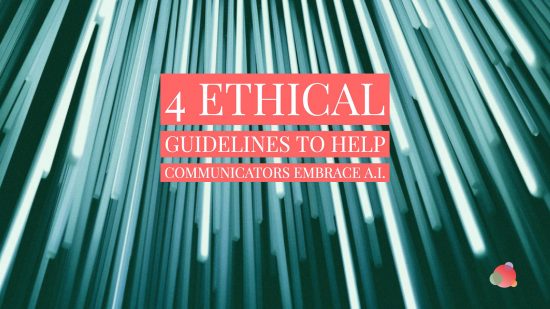 Chalk it up to the hype surrounding features such as “Blade Runner” or “Mr. Robot,” but it seems American consumers stand ready to embrace artificial intelligence.
Chalk it up to the hype surrounding features such as “Blade Runner” or “Mr. Robot,” but it seems American consumers stand ready to embrace artificial intelligence.
Consumers Ready to Embrace Artificial Intelligence
In the U.S., 45 percent of adults describe their feelings towards artificial intelligence as “interested,” per a new study, “Sex, Lies and AI: How Americans Feel About Artificial Intelligence and What Marketers Need to Know” released by SYZYGY this past October.
Their interest makes sense, as many of us already interact with AI through chatbots and virtual assistants such as Siri and Alexa.
However, it’s not all smooth sailing ahead for AI.
“Fear” is an emotion cited by many respondents.
Around 43 percent of the public thinks AI could pose a threat to long-term human survival.
Quite frankly, many people are simply confused by AI and are having trouble sorting through the benefits and potential drawbacks.
That’s driving a near-unanimous outcry (96 percent) for the public to gain a better understanding.
This mixture of fear and lack of knowledge is likely why 89 percent said that the “r” word—regulation—should to apply to AI used in marketing.
Most Americans are not anti-AI when it comes to marketing.
According to the survey, 72 percent don’t care if AI creates ads they see, and 63 percent don’t care if a robot answers the customer service line.
They want transparency and see regulation as a way to ensure they know whether they are interacting with a human or a robot.
People don’t want to be tricked.
Instituting a Code of Ethics for Use of Artificial Intelligence
So, the message for marketers and brands is if we don’t self-regulate to prevent potential abuse, the legislative and legal system may do that for us.
That’s why we decided to use the findings from our study to take the first stab at creating a framework for a code of ethics for marketers to follow.
Industry ethics is hardly a new concept, nor unfamiliar territory.
Marketing and communication professionals have embraced a code of ethics for decades.
The Public Relations Society of America (PRSA) Code of Ethics asks members to sign a compliance pledge.
The American Marketing Association (AMA) also has a longstanding Statement of Ethics.
Ethical Guidelines to Help Communicators Embrace Artificial Intelligence
Here’s our draft “AI Use by Marketers—Code of Ethics” for your consideration:
1. Do No Harm
While public understanding of artificial intelligence is low, marketers should not use that fact to take advantage of the public.
Artificial intelligence should not be used to deceive, manipulate, or harm the well-being of your audience.
Used well in marketing, AI can read all the digital signals sent by a consumer.
It can then help the brand get closer to the customer.
This happens through personalized messages designed to meet each customer’s specific needs and expectations.
That’s a good thing, but don’t try to dupe the consumer into buying something that’s not right for them.
2. Build Trust
Overall, consumers have high expectations and hopes for artificial intelligence.
Forty percent say they want it to save them time, 15 percent want it to make things safer, and 12 percent want it to save them money.
AI can promote greater transparency, honesty, and fairness in marketing.
AI technology should be used to build public confidence, not to tear down trust.
And while AI algorithms present a problem when it comes to things such as “fake news,” they also present the solution.
To eliminate false, manipulative, or deceptive content and prevent this information from spreading, use artificial intelligence.
3. Do Not Conceal
Tell the truth and ask permission.
An AI technology should not hide its identity or pose as a human when marketing or interacting with consumers.
If we want consumers to be comfortable with our using artificial intelligence to personalize offers, ads, recommendations, or other communications, we need to be honest about it.
Consumers shouldn’t have to ask the infamous Blade Runner question, “Are you a human or a replicant?” question.
It should be clear when someone is interacting with AI rather than a human company representative.
Eighty-seven percent of respondents would support a rule prohibiting AI systems such as social media bots, chatbots, or virtual assistants from concealing their AI identity or pretending to be human.
In addition to transparency, an overwhelming 71 percent of consumers also want brands to ask for consent before using AI to market to them.
4. Be Helpful
Fifty-nine percent of Americans feel artificial intelligence already affects their lives.
And they are right.
Many Americans receive exposure to AI when viewing recommendations from Amazon or Netflix, which is typically a good experience.
Using AI in marketing helps people make better purchasing decisions.
It provides clear, honest, and unbiased information addressing their genuine needs.
By showing customers we’re providing value and being transparent about AI, they’ll be more likely to trust our use of it in the future.
We can succeed at incorporating AI into effective marketing communications strategies.
Research shows the public is willing to embrace artificial intelligence.
Let’s not miss the opportunity do it right.
In the end, it’s always about the value we provide to our audiences.
Artificial intelligence helps consumers make better purchase decisions.
It also improves convenience of the products and services offered.
If we responsibly use AI and communicate effectively, it’s a powerful tool for a bright future.
What are your thoughts on AI? Please share in the comments below.